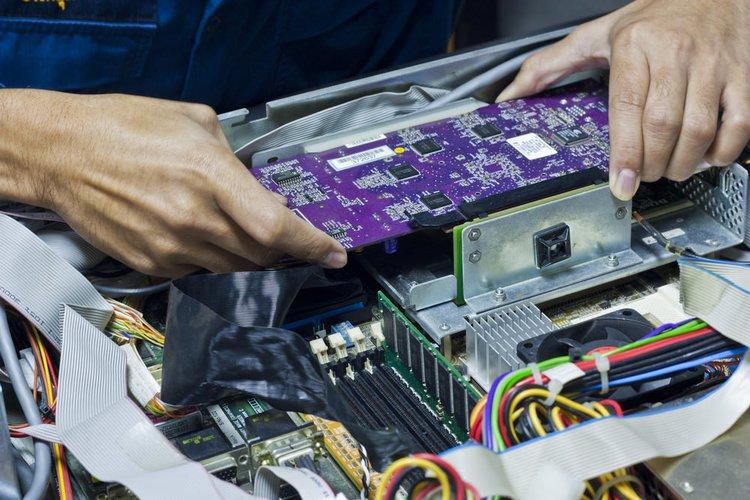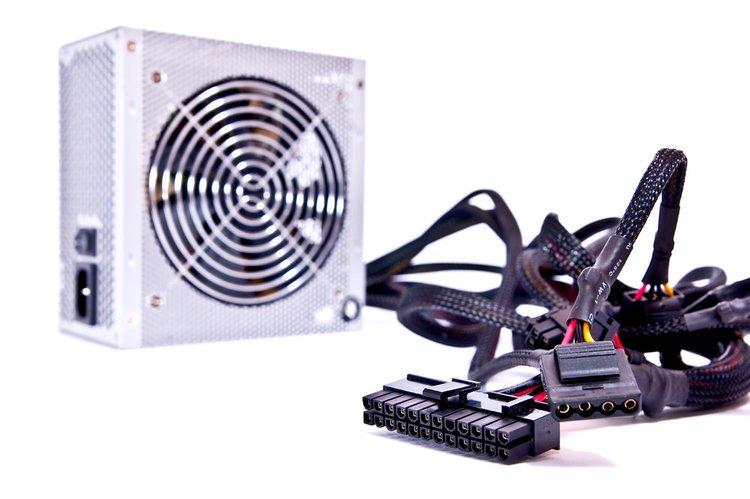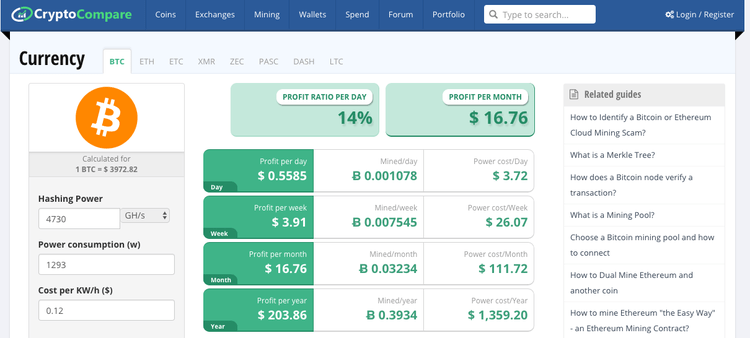Contents

Once you are ready to start bitcoin (EXANTE: Bitcoin) or any other cryptocurrency mining, you will need to know how to do it in the best and in the most profitable way.
CoinDesk suggests the following steps:
It is not just Bitcoin! You are free to choose other currencies
Here comes in the ‘proof-of-work’ measure, in which the process of mining digital currencies involves solving complex cryptographic problems. There are two proof-of-work hashing algorithms used today: SHA-256 and scrypt.
- SHA-256
The SHA-256 algorithm is based on the raw processing power. Because of a very high in difficulty level of bitcoin, specialized processors known as ‘Application Specific Integrated Chips’ (ASICs) are needed to mine it. Using these powerful processors and bitcoin’s rapid increase in difficulty level, create a technological competition, meaning that even new chips can quickly become obsolete.
- Scrypt
The scrypt algorithm favors greater amounts of RAM and parallel processing ability, which is why GPU-based rigs are still the way to go. Additionally, ASICs for scrypt have yet to take off, so the difficulty level of those currencies has not been pushed up as rapidly as has been the case with bitcoin.
Choose the right equipment
Of course it all depends on how much money you have and the type of currency you would like to mine, but there are generally two ways to go when setting up your mining system:

- DIY mining equipment: you can simply use your PC, with as many graphics cards (GPUs) as you can fit or afford. Many people prefer to use unusual casings, such as beer crates, which allow for increased airflow around the components. A bonus of DIY systems is that you can carry out both CPU and GPU mining at the same time.
- ASICs: these are the self-contained units, which come with a USB and/or Ethernet port, and are usually ready made by manufacturers. ASIC miners are most of the time more expensive than DIY equipment and are mostly produced in the USA, so those of us who are on the other side of the ocean have to spend more.
Get the power

Mining requires lots of electricity. If you chose the DIY rig, you’ll be getting an ATX power supply unit (PSU), so it is important to invest in the most efficient supply you can get.
The mining efficiency of different systems can be compared by taking the ratio of the number of hashes it can perform in a second, divided by the power it consumes:
Hashing speed / power consumption = mining efficiency
Check the bills
The important thing you need to remember when calculating your profitability is the cost of your electricity. Always check with your provider, or take a look at your last bill. Obviously it is not a good business model if the amount is too big.
Join the pool
Joining a pool always makes more sense, that’s where you combine resources with other miners. By joining a pool, you earn a share of the coins mined by all members of the pool and stand a greater chance of solving a block.
“Miners earn a share of the rewards if the difficulty level of the blocks they solve is greater than the level set by the pool operator. That level is always somewhere between one and the difficulty level of the currency.”
Profitability Calculators
There are several websites that provide profitability calculators. You can input parameters such as equipment cost, hash rate, power consumption, and the current bitcoin price, to see how long it will take to pay back your investment.
Mining profitability calculators for different crypto-currencies are offered by such web sites as:
- CryptoCompare
- MinerGate
- ASIC Trade
- BitsMedia
- BitcoinWisdom
- CoinWarz
- BTCInvest
- LiteCoinPool

In addition, there is Telegram-bot WhatToMineBot, which allows you to calculate how much money will be produced by mining different currencies under different initial conditions.
CoinDesk

